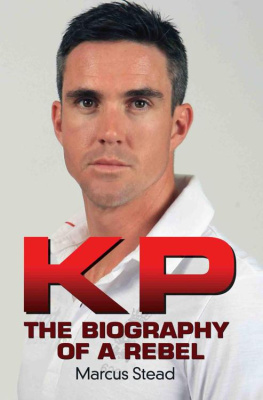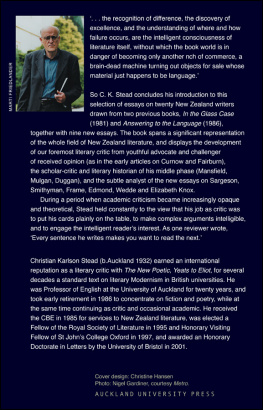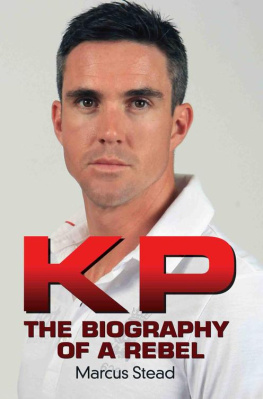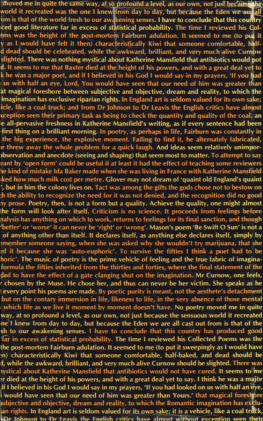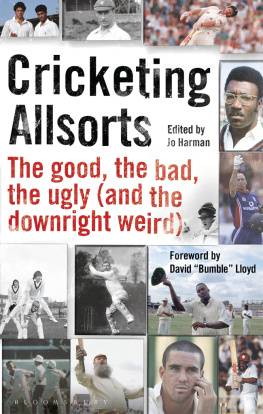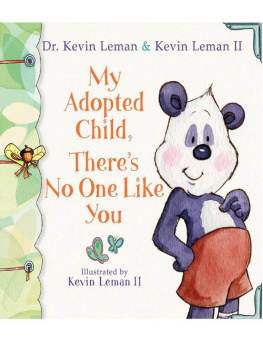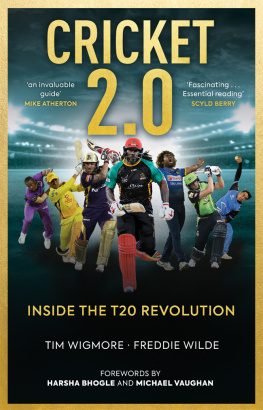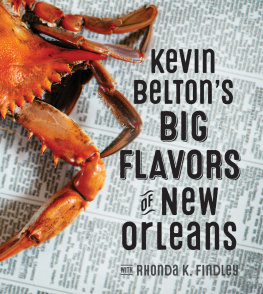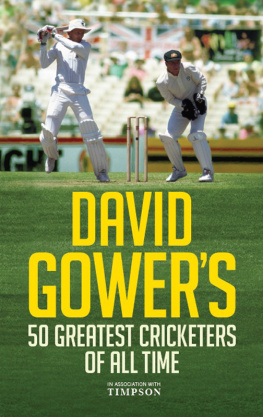Stead - KP: Portrait of a Rebel: The Biography of Kevin Pietersen
Here you can read online Stead - KP: Portrait of a Rebel: The Biography of Kevin Pietersen full text of the book (entire story) in english for free. Download pdf and epub, get meaning, cover and reviews about this ebook. year: 2013, publisher: John Blake Publishing, genre: Non-fiction. Description of the work, (preface) as well as reviews are available. Best literature library LitArk.com created for fans of good reading and offers a wide selection of genres:
Romance novel
Science fiction
Adventure
Detective
Science
History
Home and family
Prose
Art
Politics
Computer
Non-fiction
Religion
Business
Children
Humor
Choose a favorite category and find really read worthwhile books. Enjoy immersion in the world of imagination, feel the emotions of the characters or learn something new for yourself, make an fascinating discovery.
- Book:KP: Portrait of a Rebel: The Biography of Kevin Pietersen
- Author:
- Publisher:John Blake Publishing
- Genre:
- Year:2013
- Rating:5 / 5
- Favourites:Add to favourites
- Your mark:
- 100
- 1
- 2
- 3
- 4
- 5
KP: Portrait of a Rebel: The Biography of Kevin Pietersen: summary, description and annotation
We offer to read an annotation, description, summary or preface (depends on what the author of the book "KP: Portrait of a Rebel: The Biography of Kevin Pietersen" wrote himself). If you haven't found the necessary information about the book — write in the comments, we will try to find it.
KP: Portrait of a Rebel: The Biography of Kevin Pietersen — read online for free the complete book (whole text) full work
Below is the text of the book, divided by pages. System saving the place of the last page read, allows you to conveniently read the book "KP: Portrait of a Rebel: The Biography of Kevin Pietersen" online for free, without having to search again every time where you left off. Put a bookmark, and you can go to the page where you finished reading at any time.
Font size:
Interval:
Bookmark:

F rom the very start of his life Kevin Pietersen was surrounded by competitive people. Born on 27 June 1980, his upbringing was both privileged and tightly disciplined. He was the third of four children, all boys, and his childhood was mainly a happy one. He grew up in Pietermaritzburg, the capital of Natal Province, a sleepy town lying in the shadows of the more cosmopolitan and lively Durban, which is about an hours drive away. It is often mocked by Durban people who refer to it as Sleepy Hollow. The writer Tom Sharpe, who once lived in Pietermaritzburg, loved to say it was half the size of New York Cemetery and twice as dead.
The greatest historical event to take place in the town happened in the early life of Mahatma Gandhi. In May 1893, when Gandhi was travelling by train to Pretoria, a white man objected to him sitting in a first-class carriage. Gandhi had a first-class ticket and believed he had the right to sit there, but was ordered to move to the van compartment at the back of the train. He stood his ground and was thrown off the train at Pietermaritzburg. Shivering through the winter night in the waiting room of the station, he made the momentous decision to stay in South Africa and fight the racial discrimination against Indians which existed there.
Out of the struggle emerged his vision for non-violent resistance, called Satyagraha, which much later became an influence for Martin Luther King. Today, a bronze statue of Gandhi stands in the Pietermaritzburg city centre. The party capital of South Africa it certainly was not, but it provided the stable environment in which Kevin spent his formative years.
His father, Jannie Pietersen, is an Afrikaner and has worked as a director of a civil engineering firm for most of Kevins life. Until the late 1980s he worked locally in Pietermaritzburg, and then in Durban where he has remained ever since. Kevins mother, Penny, first arrived in South Africa aged 18. She is originally from Canterbury and emigrated to South Africa, when her father, a coal miner, got a job there. She met Jannie while he was in the army doing his national service in Pretoria.
Kevins eldest brother, Tony, is now married with two children and works as a minister in his own church in Durban. Next up is Gregg, who is also married, and manages an import and export company which involves travel all around the world. His younger brother, Bryan, now lives in England and used to run a bar in Nottingham before moving to Southampton a few years ago.
Jannie has been a huge influence on Kevins life and shares many characteristics with his son. He is full of energy, commuting long distances to and from work each day, and when he gets home he usually spends several hours in the garden. He only sits down to go to sleep, when his energy is completely spent. Sitting around watching television just isnt for him. Sport has always played a huge role in Jannies life. In his younger days he played first-division rugby in South Africa and he and his wife both play squash to a good standard.
With Jannie having such a good job it meant that Penny could concentrate on raising the children and maintaining the home where they enjoyed a comfortable upbringing their house was spacious and there was a large pool in the back garden but this did not mean they were in any way spoilt as children.
As the man of the house, Jannie ran a strict regime with his children. All four boys lived in fear of his cane, called an army stick. If any of the children misbehaved at home or at school they could expect to be beaten with it. When Kevin was growing up his fathers choice of punishment seemed harsh, but as he matured he learnt to respect Jannie for it. Today, Kevin believes caning should be allowed in homes and schools Hes gone on record saying that children in Britain get away with too much, while being brought up to fear the cane does them good. Despite the strictness, Kevin found the family home a loving and warm place in which to grow up. Jannie and Pennys marriage has always been rock solid and none of the children have ever seen them have a serious argument.
Kevins parents are devout Christians and, as with many South Africans, the Sabbath is strictly observed in their house. The whole family would attend church on Sunday mornings and again on Sunday nights throughout Kevins childhood. The children were lucky because their home was surrounded by green-belt land, and their health-conscious parents encouraged them to live the outdoor life. From their earliest years they would run and walk in the nearby forest.
The boys were always close, yet Jannie installed a competitive edge amongst the siblings that was to have a profound effect on Kevin far beyond his childhood. Even as small children they would be up at the crack of dawn and would race a certain number of lengths in the pool, which would be followed by a run around the local neighbourhood, after which theyd go out on their bikes.
When Kevin was just five years old he broke his collarbone, but only a fortnight later he was out of a sling and back jumping in the swimming pool. This resilience to fight injury, and a determination to get back to being active as soon as possible, was a characteristic that would shine through again and again in the years ahead. All of this met with his parents approval. Sitting in front of the TV or spending endless hours playing computer games wasnt encouraged. They both wanted the boys to get into good habits at a young age, and all the boys embraced this lifestyle.
Kevins first school was Clarendon, his second was Merchiston, and his senior high school was the prestigious Pietermaritzburg College. All were fee-paying and for boys only. He attended his first two schools during the apartheid era in which children were labelled as white, coloured or black, according to their ethnicity. Kevins schools were for whites only. This was the political system in which Kevin was forced to grow up, and things only began to change when he reached his early teens. Fortunately, the experience of his early years did not lead him to believe in segregation and he regularly mixed happily with coloured and black children outside school.
All of Kevins schools maintained strict regimes which mirrored that of his home life. From the start the children were expected to be punctual, which instilled a hatred of lateness into Kevin which has stayed with him to this day. Everyone knew their place, and respect was expected to be shown to teachers, other members of staff and those in senior forms.
Nobody would get away with taking advantage of anybody else, and being cheeky or abusive was not tolerated. The children lived in fear of the cane, and there was absolutely no nonsense of any kind. Kevin knew that if he received the cane at school he would very likely be caned again at home when his father found out what hed done.
That said, the strict regime made for a safe and happy time at school and it gave Kevin the opportunity to lay the foundations for the rest of his life, as well as forcing him to get into good habits that would stand him in good stead in his future career.
His love of sport was well-established in his first few years at school and although he was good academically, eventually gaining three A-levels, sport was always his passion. Every Sunday, Kevin would accompany his parents and his brothers to church, which he always loved doing, even though he didnt fully appreciate the religious aspects of it until he was much older. The main reason he enjoyed church so much was because the Pietersens would meet up with their best friends, the Cole Edwards family, and Kevin and his brothers would get to play soccer with the children. Their father was the minister of the church, and the two families have remained close.
Font size:
Interval:
Bookmark:
Similar books «KP: Portrait of a Rebel: The Biography of Kevin Pietersen»
Look at similar books to KP: Portrait of a Rebel: The Biography of Kevin Pietersen. We have selected literature similar in name and meaning in the hope of providing readers with more options to find new, interesting, not yet read works.
Discussion, reviews of the book KP: Portrait of a Rebel: The Biography of Kevin Pietersen and just readers' own opinions. Leave your comments, write what you think about the work, its meaning or the main characters. Specify what exactly you liked and what you didn't like, and why you think so.

